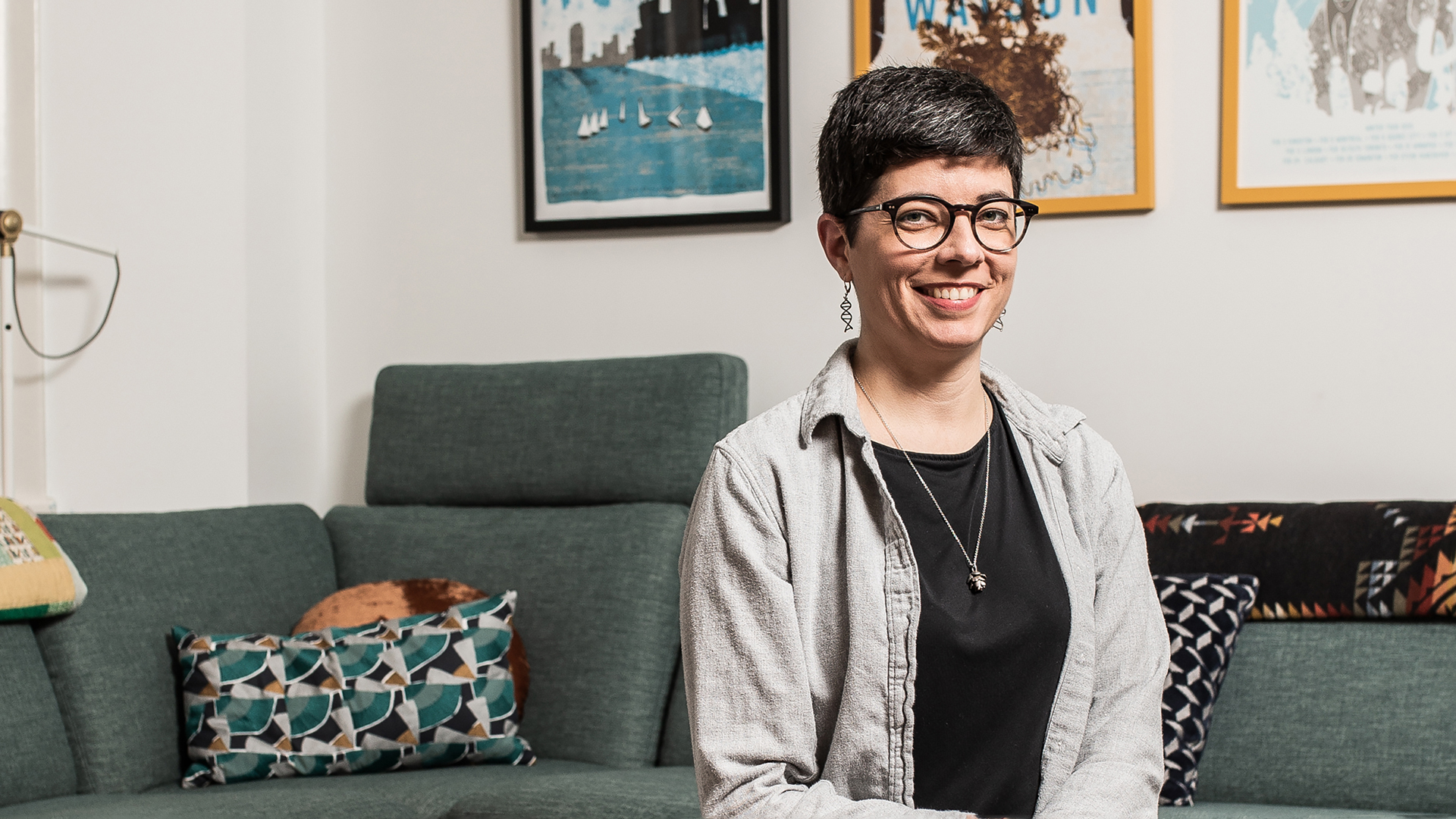By: Leslie McCarley
1 Oct, 2021

Leslie: CIFAR has a unique approach that convenes extraordinary minds to address important questions. What is it about this model that appeals to you?
Claire: It’s an incredible model because the big problems facing science and humanity will require people from varied backgrounds to address the different facets of the same problem. And, it’s rare that people from such disparate spheres come together to tackle an issue.
It’s great to have an organization that encourages cross and inter-disciplinary conversations and collaboration. CIFAR puts the top minds in the same room to talk about subjects of interest to all of them, but from different angles. There is a lot of value in that.
Leslie: Is there anything particularly unique about the times we live in, and the impact of science, during a global pandemic?
Claire: Many CIFAR researchers pivoted to address this immediate threat. That kind of responsiveness is unique. And, because they’ve been working with colleagues outside their respective fields, CIFAR researchers hit the ground running.
The broader research community didn’t have that same experience to draw on. At first, you’ll recall that there was great debate about whether the virus was spread via aerosol or droplets and a lot of it boiled down to how clinicians defined terms versus how aerosol engineers defined terms. When you bring these experts together, it sinks in — they each have their own definitions and types of evidence they consider relevant.
At the Trottier Family Foundation, we’re convinced collaboration will help us solve problems faster and more efficiently. That’s what appeals to us about CIFAR.
Leslie: CIFAR asks questions with implications for the future. It has urgency, with a long view. As a scientist, can you share your perspective on why that might be important today?
Claire: The long view is absolutely essential. I got my vaccine two weeks ago. The basic science and discovery science that went into our ability to make that vaccine rapidly is incredible. Over decades, we made investments in basic science, and it paid off, big time. We would all still be waiting for a vaccine without it. Can you imagine?
I’m a scientist by training, and I believe in applied research. You need basic research, fundamental research, and collaborative research. Otherwise, we’re in big trouble.
Leslie: It could be argued that knowledge on a shelf isn’t knowledge at all. How do you think research breakthroughs should be mobilized and translated into practice in industry and public policy?
Claire: I’d love to see governments look at how they fund research and how they can encourage and support collaboration and risk-taking. We would get a lot further if there was more of that type of support.
It’s a great honour for scientists to be selected as CIFAR researchers. In an ideal world, you wouldn’t need this type of recognition to be valued in universities and academia. Doing collaborative work, like what’s being done at CIFAR, should be the norm.
Leslie: CIFAR is an international organization based proudly in Canada. Do you think our home base matters?
Claire: CIFAR is a Canadian-based organization with Canadian and international researchers. It supports collaborative research and leadership, and it also brings the best Canadian researchers together with the best from around the world.
I think it’s a cool thing to be proud of as a Canadian.